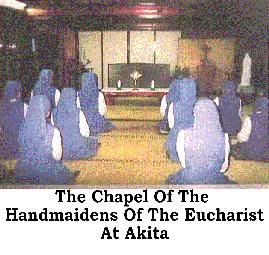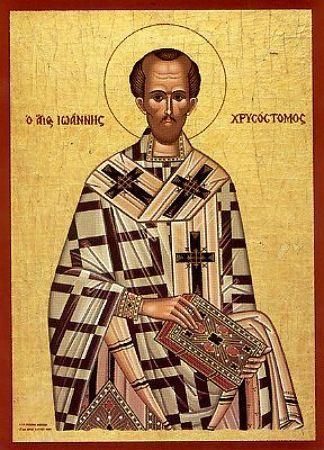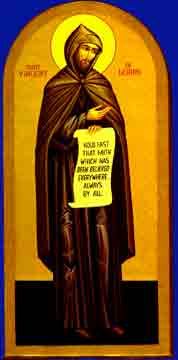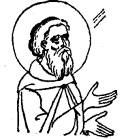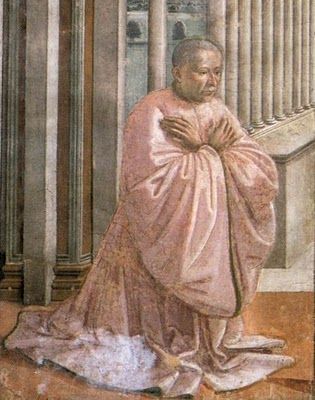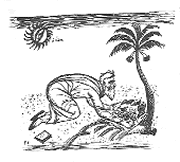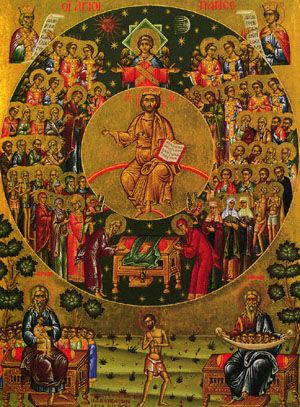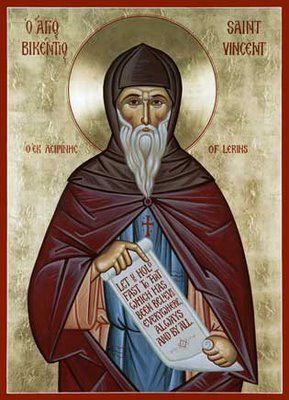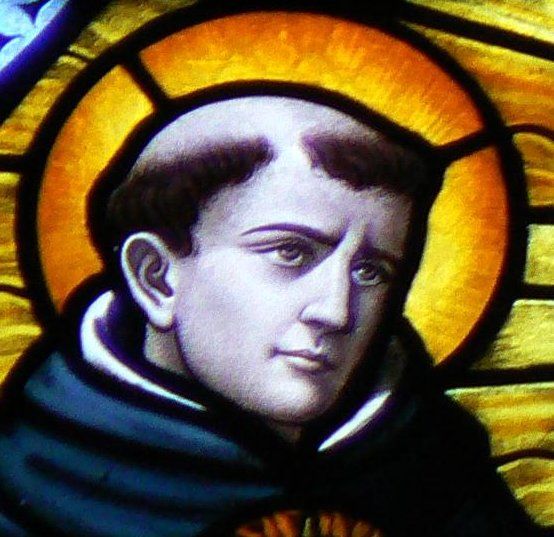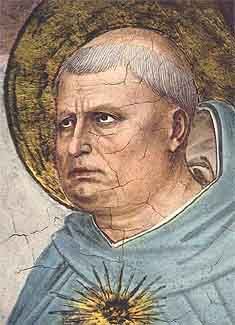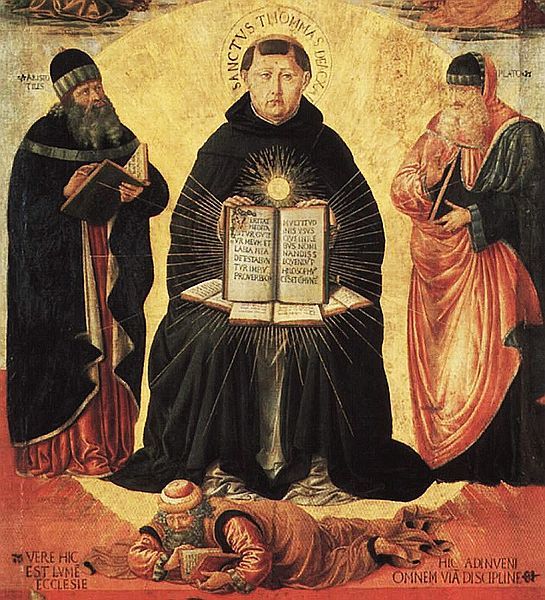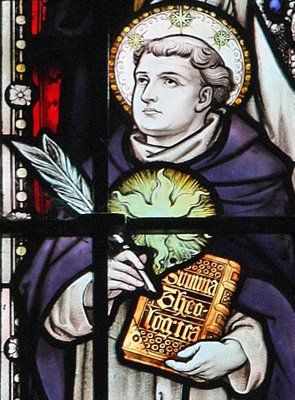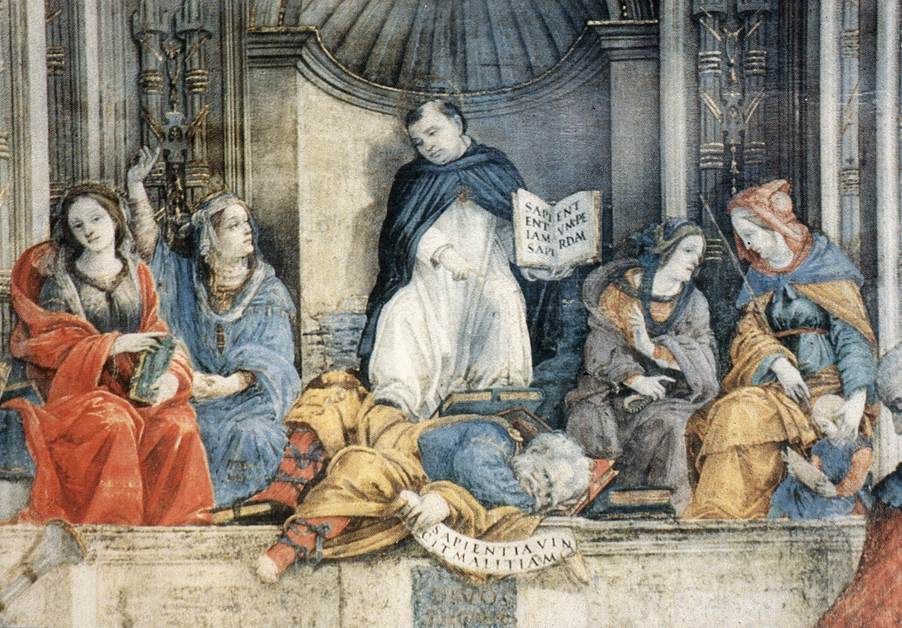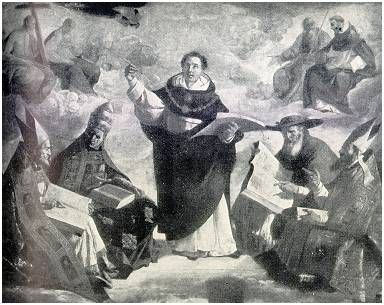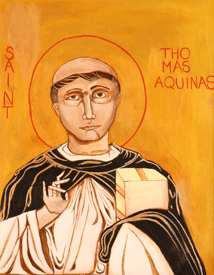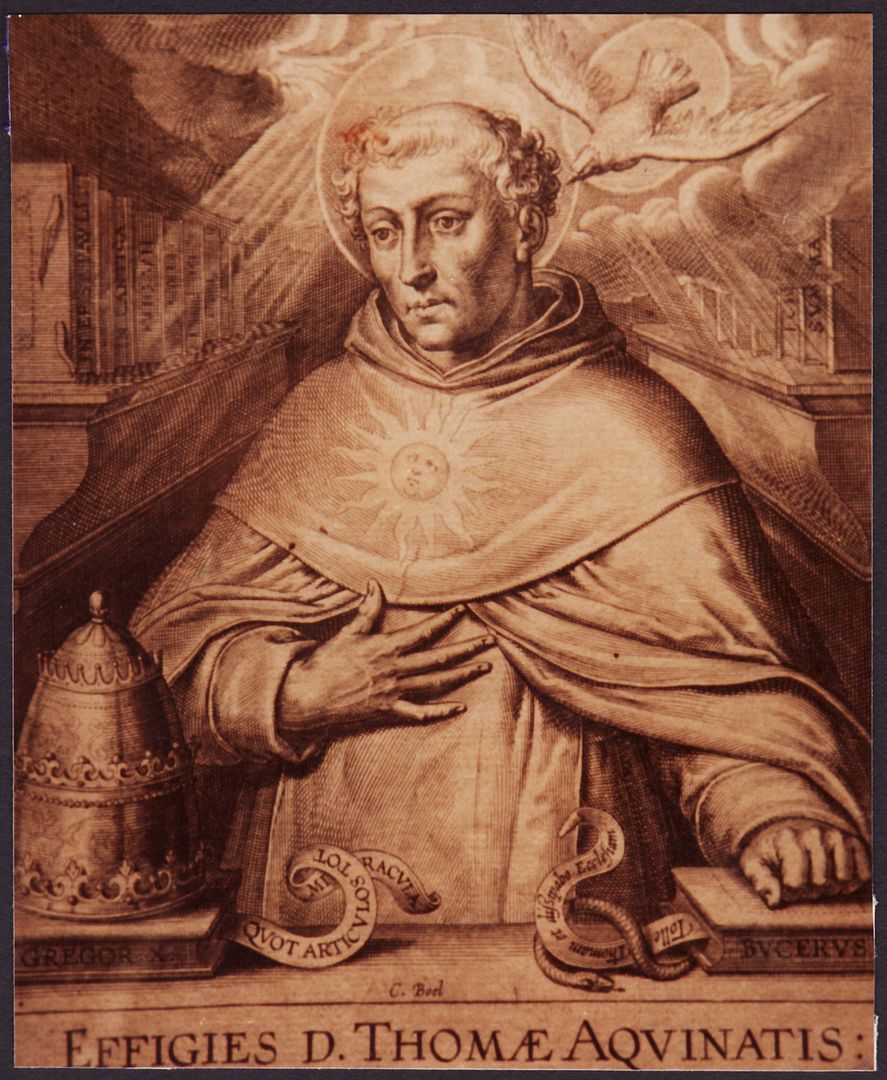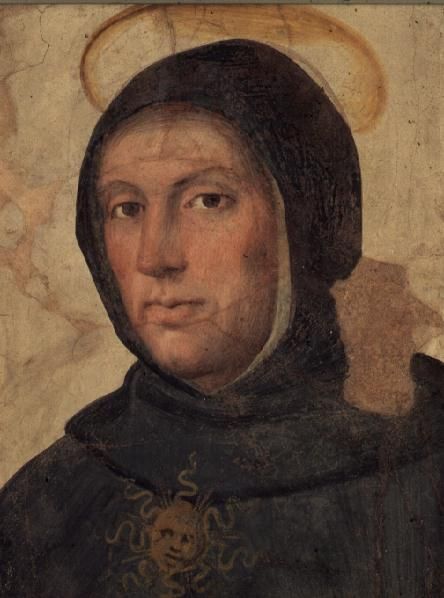Most Sacred Heart of Jesus, truly present in the Holy Eucharist, I consecrate my body and soul to be entirely one with Thy Heart, being sacrificed at every instant on all the altars of the world and giving praise to the Father pleading for the coming of his Kingdom. Please receive this humble offering of myself. Use me as Thou wilt for the glory of the Glory of the Father and salvation of souls. Most Holy Mother of God, never let me be separated from Thine Divine Son. Please defend and protect me as Thy special child. Amen
In 1973, Our Blessed Mother—Our Lady of Akita—appeared to Sister Agnes Sasagawa at Akita Japan. Sister Agnes, a member of the Institute of the Handmaids of the Eucharist, received three messages from The Blessed Virgin, the first of which asked her to pray the Prayer of the Handmaids of the Eucharist each day. In this prayer, Our Lady introduced three subtle new devotions through her apparitions at Akita, building upon those she had delivered at Fatima. Two of these new devotions are contained within the prayer itself.
The first new devotion communicated by Mary to Sister Agnes, and therefore to the world, at Akita, was the use of the term: “truly.” That is, referring to the "Sacred Heart of Jesus truly present in Blessed Sacrament of the Altar.” The word "truly" was not used by the Angel at Fatima. It is believed that Our Lady chose this prayer to emphasize the reality of the true sacramental presence of the Body, Blood, Soul, and Divinity of Jesus Christ present in the Most Blessed Sacrament of the Altar. The faithful are thus called to refer to and believe in Jesus as "truly" present in the Blessed Sacrament of the Altar.
The second devotion introduced at Akita was the inclusion of the soul as called to consecrate itself in union with the Eucharistic Heart of Jesus present in Blessed Sacrament. Souls are called to identify themselves to be consciously spiritually and supernaturally united with the sacramental presence of Our Eucharistic Lord.
The third devotion explicitly ratified at Akita, is the reality of Our Lady as Co-Redemptrix of the Human Race. This was demonstrated by the agonies of pain and sorrow which the Blessed Virgin continues to suffer for the salvation of men- a sorrow which is closely related to her sorrow on Calvary. The pain and sorrow expressed by Our Lady of Akita demonstrates not only her intimate participation in the Salvation of the Human Race, but also her integral participation in the redemptive sacrifice of the Human Race performed in sacrificial union with Jesus at Calvary. Mary suffered to atone for the sin of Eve, while Christ suffered to atone for the sin of Adam. The sins of both Adam and Eve constituted the fullness of the fall of the Human Race, and the sufferings of both Jesus and Mary constituted the fullness of the redemption of the human race, which was accomplished at Calvary.
Why pray the Rosary every day for a year?
Each time the Blessed Virgin has appeared-- whether it be to Saint Bernadette Soubirous at Lourdes; to Lucia, Jacinta, and Francisco at Fatima; or to Mariette Beco at Banneux-- she has asserted the importance, saving grace, and power of praying the Holy Rosary on a daily basis. Based upon her words, the Rosary is penance and conversion for sinners, a pathway to peace, an end to war, and a powerful act of faith in Jesus Christ. Pope Paul VI presented the Rosary as a powerful means to reach Christ "not merely with Mary but indeed, insofar as this is possible to us, in the same way as Mary, who is certainly the one who thought about Him more than anyone else has ever done."
To show us how this is done, perhaps no one has been more eloquent than the great Cardinal Newman, who wrote: "The great power of the Rosary consists in the fact that it translates the Creed into Prayer. Of course, the Creed is already in a certain sense a prayer and a great act of homage towards God, but the Rosary brings us to meditate again on the great truth of His life and death, and brings this truth close to our hearts. Even Christians, although they know God, usually fear rather than love Him. The strength of the Rosary lies in the particular manner in which it considers these mysteries, since all our thinking about Christ is intertwined with the thought of His Mother, in the relations between Mother and Son; the Holy Family is presented to us, the home in which God lived His infinite love."
As Mary said at Fatima, "Jesus wants to use you to make Me known and loved. He wishes to establish the devotion to My Immaculate Heart throughout the world. I promise salvation to whoever embraces it; these souls will be dear to God, like flowers put by Me to adorn his throne."

Today, July 30, we celebrate the feast day of Saint Peter Chrysologus (380-450), bishop and Doctor of the Church. Saint Peter’s great gift to the Church is the words he left behind and the impact those words have upon those who hear them—both while he was alive, and in the present day. His name, meaning “Golden Word” in Greek, comes not from long and intricate homilies given on complex theological issues, but rather his humility and the hope that he would not “bore” the faithful. His teachings on the Annunciation, Prayer, Fasting and Mercy, the Incarnation and Human Dignity, the Priesthood of All Catholic Believers, the Epiphany, and the Love of God—as well as nearly 200 other sermons—survive today, inspiring us, and reminding us of the core tenets of our faith. He is credited as the first to deliver the “short sermon”—morally rich, Gospel-driven, doctrinally sound brief reflections on the Catholic way of being in the world, in relation to God.
Born in Imola, Italy, Peter was baptized, educated, and ordained a deacon by the Bishop of Imola, Cornelius. From his ordination, he was recognized for his simple, plain, and humble oratorical style—delivering sermons that reached all who listened. His eloquence earned him the name “Chrysologus,” meaning “golden-worded” in Greek.
Consecrated as Bishop of Ravenna—the capital of the Roman Empire in the West , Saint Peter spent the majority of his life there, tending to his flock, delivering sermons, countering heresy, encouraging service and mercy to others, and establishing services to care for the city’s poor. He is credited with driving paganism from the city, having remarked, "Anyone who wishes to frolic with the devil cannot rejoice with Christ."
Knowing that his own death was near, Peter returned to the city of his birth, Imola, and after urging great care in the choice of his successor he died there. His relics were buried in the church of Saint Cassian.
The legacy of Saint Peter Chrysologus is his writings. Below are excerpts from some of his sermons. His words, written in the fifth century, continue to have potent meaning today, calling us to lives of prayer, fasting, and mercy, and lives which value our personal human dignity as sons and daughters of Christ.
From a sermon by St. Peter Chrysologus on Prayer, Fasting, and Mercy:
There are three things, my brethren, by which faith stands firm, devotion remains constant, and virtue endures. They are prayer, fasting and mercy. Prayer knocks at the door, fasting obtains, mercy receives. Prayer, mercy and fasting: these three are one, and they give life to each other.
Fasting is the soul of prayer, mercy is the lifeblood of fasting. Let no one try to separate them; they cannot be separated. If you have only one of them or not all together, you have nothing. So if you pray, fast; if you fast, show mercy; if you want your petition to be heard, hear the petition of others. If you do not close your ear to others you open God’s ear to yourself.
When you fast, see the fasting of others. If you want God to know that you are hungry, know that another is hungry. If you hope for mercy, show mercy. If you look for kindness, show kindness. If you want to receive, give. If you ask for yourself what you deny to others, your asking is a mockery.
Let this be the pattern for all men when they practice mercy: show mercy to others in the same way, with the same generosity, with the same promptness, as you want others to show mercy to you.
Therefore, let prayer, mercy and fasting be one single plea to God on our behalf, one speech in our defense, a threefold united prayer in our favor.
Let us use fasting to make up for what we have lost by despising others. Let us offer our souls in sacrifice by means of fasting. There is nothing more pleasing that we can offer to God, as the psalmist said in prophecy: A sacrifice to God is a broken spirit; God does not despise a bruised and humbled heart.
Offer your soul to God, make him an oblation of your fasting, so that your soul may be a pure offering, a holy sacrifice, a living victim, remaining your own and at the same time made over to God. Whoever fails to give this to God will not be excused, for if you are to give him yourself you are never without the means of giving.
To make these acceptable, mercy must be added. Fasting bears no fruit unless it is watered by mercy. Fasting dries up when mercy dries up. Mercy is to fasting as rain is to earth. However much you may cultivate your heart, clear the soil of your nature, root out vices, sow virtues, if you do not release the springs of mercy, your fasting will bear no fruit.
When you fast, if your mercy is thin your harvest will be thin; when you fast, what you pour out in mercy overflows into your barn. Therefore, do not lose by saving, but gather in by scattering. Give to the poor, and you give to yourself. You will not be allowed to keep what you have refused to give to others.
From a sermon by Saint Peter Chrysologus on the Incarnation and Human Dignity
A virgin conceived, bore a son, and yet remained a virgin. This is no common occurrence, but a sign; no reason here, but God’s power, for he is the cause, and not nature. It is a special event, not shared by others; it is divine, not human. Christ’s birth was not necessity, but an expression of omnipotence, a sacrament of piety for the redemption of men. He who made man without generation from pure clay made man again and was born from a pure body. The hand that assumed clay to make our flesh deigned to assume a body for our salvation. That the Creator is in his creature and God is in the flesh brings dignity to man without dishonor to him who made him.
Why then, man, are you so worthless in your own eyes and yet so precious to God? Why render yourself such dishonor when you are honored by him? Why do you ask how you were created and do not seek to know why you were made? Was not this entire visible universe made for your dwelling? It was for you that the light dispelled the overshadowing gloom; for your sake was the night regulated and the day measured, and for you were the heavens embellished with the varying brilliance of the sun, the moon and the stars. The earth was adorned with flowers, groves and fruit; and the constant marvelous variety of lovely living things was created in the air, the fields, and the seas for you, lest sad solitude destroy the joy of God’s new creation. And the Creator still works to devise things that can add to your glory. He has made you in his image that you might in your person make the invisible Creator present on earth; he has made you his legate, so that the vast empire of the world might have the Lord’s representative. Then in his mercy God assumed what he made in you; he wanted now to be truly manifest in man, just as he had wished to be revealed in man as in an image. Now he would be in reality what he had submitted to be in symbol.
And so Christ is born that by his birth he might restore our nature. He became a child, was fed, and grew that he might inaugurate the one perfect age to remain for ever as he had created it. He supports man that man might no longer fall. And the creature he had formed of earth he now makes heavenly; and what he had endowed with a human soul he now vivifies to become a heavenly spirit. In this way he fully raised man to God, and left in him neither sin, nor death, nor travail, nor pain, nor anything earthly, with the grace of our Lord Christ Jesus, who lives and reigns with the Father in the unity of the Holy Spirit, now and forever, for all the ages of eternity. Amen.
Father,
You made Peter Chrysologus
an outstanding preacher of your incarnate Word.
May the prayers of St. Peter help us to cherish
the mystery of our salvation
and make its meaning clear in our love for others.
Grant this through our Lord Jesus Christ, Your Son,
who lives and reigns with you and the Holy Spirit,
one God, for ever and ever. Amen.
Born in Imola, Italy, Peter was baptized, educated, and ordained a deacon by the Bishop of Imola, Cornelius. From his ordination, he was recognized for his simple, plain, and humble oratorical style—delivering sermons that reached all who listened. His eloquence earned him the name “Chrysologus,” meaning “golden-worded” in Greek.
Consecrated as Bishop of Ravenna—the capital of the Roman Empire in the West , Saint Peter spent the majority of his life there, tending to his flock, delivering sermons, countering heresy, encouraging service and mercy to others, and establishing services to care for the city’s poor. He is credited with driving paganism from the city, having remarked, "Anyone who wishes to frolic with the devil cannot rejoice with Christ."
Knowing that his own death was near, Peter returned to the city of his birth, Imola, and after urging great care in the choice of his successor he died there. His relics were buried in the church of Saint Cassian.
The legacy of Saint Peter Chrysologus is his writings. Below are excerpts from some of his sermons. His words, written in the fifth century, continue to have potent meaning today, calling us to lives of prayer, fasting, and mercy, and lives which value our personal human dignity as sons and daughters of Christ.
From a sermon by St. Peter Chrysologus on Prayer, Fasting, and Mercy:
There are three things, my brethren, by which faith stands firm, devotion remains constant, and virtue endures. They are prayer, fasting and mercy. Prayer knocks at the door, fasting obtains, mercy receives. Prayer, mercy and fasting: these three are one, and they give life to each other.
Fasting is the soul of prayer, mercy is the lifeblood of fasting. Let no one try to separate them; they cannot be separated. If you have only one of them or not all together, you have nothing. So if you pray, fast; if you fast, show mercy; if you want your petition to be heard, hear the petition of others. If you do not close your ear to others you open God’s ear to yourself.
When you fast, see the fasting of others. If you want God to know that you are hungry, know that another is hungry. If you hope for mercy, show mercy. If you look for kindness, show kindness. If you want to receive, give. If you ask for yourself what you deny to others, your asking is a mockery.
Let this be the pattern for all men when they practice mercy: show mercy to others in the same way, with the same generosity, with the same promptness, as you want others to show mercy to you.
Therefore, let prayer, mercy and fasting be one single plea to God on our behalf, one speech in our defense, a threefold united prayer in our favor.
Let us use fasting to make up for what we have lost by despising others. Let us offer our souls in sacrifice by means of fasting. There is nothing more pleasing that we can offer to God, as the psalmist said in prophecy: A sacrifice to God is a broken spirit; God does not despise a bruised and humbled heart.
Offer your soul to God, make him an oblation of your fasting, so that your soul may be a pure offering, a holy sacrifice, a living victim, remaining your own and at the same time made over to God. Whoever fails to give this to God will not be excused, for if you are to give him yourself you are never without the means of giving.
To make these acceptable, mercy must be added. Fasting bears no fruit unless it is watered by mercy. Fasting dries up when mercy dries up. Mercy is to fasting as rain is to earth. However much you may cultivate your heart, clear the soil of your nature, root out vices, sow virtues, if you do not release the springs of mercy, your fasting will bear no fruit.
When you fast, if your mercy is thin your harvest will be thin; when you fast, what you pour out in mercy overflows into your barn. Therefore, do not lose by saving, but gather in by scattering. Give to the poor, and you give to yourself. You will not be allowed to keep what you have refused to give to others.
From a sermon by Saint Peter Chrysologus on the Incarnation and Human Dignity
A virgin conceived, bore a son, and yet remained a virgin. This is no common occurrence, but a sign; no reason here, but God’s power, for he is the cause, and not nature. It is a special event, not shared by others; it is divine, not human. Christ’s birth was not necessity, but an expression of omnipotence, a sacrament of piety for the redemption of men. He who made man without generation from pure clay made man again and was born from a pure body. The hand that assumed clay to make our flesh deigned to assume a body for our salvation. That the Creator is in his creature and God is in the flesh brings dignity to man without dishonor to him who made him.
Why then, man, are you so worthless in your own eyes and yet so precious to God? Why render yourself such dishonor when you are honored by him? Why do you ask how you were created and do not seek to know why you were made? Was not this entire visible universe made for your dwelling? It was for you that the light dispelled the overshadowing gloom; for your sake was the night regulated and the day measured, and for you were the heavens embellished with the varying brilliance of the sun, the moon and the stars. The earth was adorned with flowers, groves and fruit; and the constant marvelous variety of lovely living things was created in the air, the fields, and the seas for you, lest sad solitude destroy the joy of God’s new creation. And the Creator still works to devise things that can add to your glory. He has made you in his image that you might in your person make the invisible Creator present on earth; he has made you his legate, so that the vast empire of the world might have the Lord’s representative. Then in his mercy God assumed what he made in you; he wanted now to be truly manifest in man, just as he had wished to be revealed in man as in an image. Now he would be in reality what he had submitted to be in symbol.
And so Christ is born that by his birth he might restore our nature. He became a child, was fed, and grew that he might inaugurate the one perfect age to remain for ever as he had created it. He supports man that man might no longer fall. And the creature he had formed of earth he now makes heavenly; and what he had endowed with a human soul he now vivifies to become a heavenly spirit. In this way he fully raised man to God, and left in him neither sin, nor death, nor travail, nor pain, nor anything earthly, with the grace of our Lord Christ Jesus, who lives and reigns with the Father in the unity of the Holy Spirit, now and forever, for all the ages of eternity. Amen.
Father,
You made Peter Chrysologus
an outstanding preacher of your incarnate Word.
May the prayers of St. Peter help us to cherish
the mystery of our salvation
and make its meaning clear in our love for others.
Grant this through our Lord Jesus Christ, Your Son,
who lives and reigns with you and the Holy Spirit,
one God, for ever and ever. Amen.
Today, May 14, we celebrate the feast of Saint Vincent of Lerins (died 445), monk and leading theologian of the church of Gaul, and author of the Commonitorium—a guide to orthodox Catholic teaching. In his writings, Saint Vincent strove to eradicate heresies, and offered instruction for the discernment of true and false tradition via what has come to be known as the Vincentian Canon: “quod ubique, quod semper, quod ab omnibus credituni est:” "what has been believed everywhere, always, and by all.” Saint Vincent believed that the ultimate source of Christian truth was Holy Scripture and that the authority of the Church was to be invoked to guarantee the correct interpretation of Scripture.
Vincent was born to a noble family in Gaul (modern-day France), and was likely the brother of Saint Lupus. Bishop of Troyes. As a young man, Vincent served in the army as a soldier, but later embraced the monastic life, settling on the island of Lerins off the southern coast of France. There, he wrote, he could “avoid the concourse and crowds of cities... I can follow without distraction the Psalmist's admonition, “Be still, and know that I am God.” Vincent was ordained at Lerins, and set about writing his work, the Commonitorium, a "Reminder," where he wrote down "those things which I have truthfully received from the holy Fathers," which they "have handed down to us and committed to our keeping."
St. Vincent lived in an age of great historical change: constant invasions threatened Christians society, and the foundations of the faith had been only recently been solidified via Ecumencial Council. Based upon this uncertainty, Saint Vincent strove tirelessly to preserve the authority of Christian tradition. He was not opposed to progress or doctrinal development, recognizing that as society evolves, so do challenges requiring a solid Christian response and teaching. In his words, "...but it must be progress in the proper sense of the word, and not a change in faith. Progress means that each thing grows within itself, whereas change implies that one thing is transformed into another .... The growth of religion in the soul should be like the growth of the body, which in the course of year develops and unfolds, yet remains the same as it was."
Saint Eucherius of Lyons referred to Saint Vincent as "a jewel shining with the brilliance of his spiritual life.” His Acts are recorded by Gennadius:
“Vincentius, the Gaul, presbyter in the Monastery on the Island of Lerins, a man learned in the Holy Scriptures and very well informed in matters of ecclesiastical doctrine, composed a powerful disputation, written in tolerably finished and clear language, which, suppressing his name, he entitled 'Peregrinus against heretics'. The greater part of the second book of this work having been stolen, he composed a brief reproduction of the substance of the original work, and published in one book. He died in the reign of Theodosius and Valentinianus.”
From a homily by Father James Thorton: “In his great work, the Saint tells us that we may discover the truth first through reading Holy Scripture, for that is the basis of everything. Yet, he points out, men may differ in their interpretation of Holy Scripture. How may we know which interpretation is the correct one? We know by consulting the writings of authorities within the Church, the great Saints and Church Fathers, and this we do carefully. In Saint Vincent’s words: “[I]n the Catholic Church itself, all possible care must be taken, that we hold that faith which has been believed everywhere, always, by all. For that is truly and in the strictest sense ‘Catholic,’ which, as the name itself and the reason of the thing declare, comprehends all universally. This rule we shall observe if we follow universality, antiquity, and consent. We shall follow universality if we confess that one faith to be true, which the whole Church throughout the world confesses; antiquity, if we in no wise depart from those interpretations which it is manifest were notoriously held by our holy ancestors and fathers; consent, in like manner, if in antiquity itself we adhere to the consentient definitions and determinations of all, or at the least of almost all priests and doctors.”
Saint Vincent of Lerins reminds us that progress should not occur at the expense of tradition and the long-standing tenets and beliefs of the faithful. In a society where change is considered the hallmark of progress, we might reflect on the orthodoxy of Saint Vincent, as an inspiration and reminder of the long-standing traditions of the Church, and their firm grounding in the teachings of Jesus Christ.
From the Commonitorium:
CHAPTER IV: What Must be Believed by Catholics
(1) I have continually given the greatest pains and diligence to inquiring, from the greatest possible number of men outstanding in holiness and in doctrine, how I can secure a kind of fixed and, as it were, general and guiding principle for distinguishing the true Catholic Faith from the degraded falsehoods of heresy. And the answer that I receive is always to this effect; that if I wish, or indeed if anyone wishes, to detect the deceits of heretics that arise and to avoid their snares and to keep healthy and sound in a healthy faith, we ought, with the Lord's help, to fortify our faith in a twofold manner, firstly, that is, by the authority of God's Law, then by the tradition of the Catholic Church.
(2) Here, it may be, someone will ask, Since the canon of Scripture is complete, and is in itself abundantly sufficient, what need is there to join to it the interpretation of the Church? The answer is that because of the very depth of Scripture all men do not place one identical interpretation upon it. The statements of the same writer are explained by different men in different ways, so much so that it seems almost possible to extract from it as many opinions as there are men. Novatian expounds in one way, Sabellius in another, Donatus in another, Arius, Eunomius and Macedonius in another, Photinus, Apollinaris and Priscillian in another, Jovinian, Pelagius and Caelestius in another, and latterly Nestorius in another. Therefore, because of the intricacies of error, which is so multiform, there is great need for the laying down of a rule for the exposition of Prophets and Apostles in accordance with the standard of the interpretation of the Church Catholic.
(3) Now in the Catholic Church itself we take the greatest care to hold that which has been believed everywhere, always and by all. That is truly and properly 'Catholic,' as is shown by the very force and meaning of the word, which comprehends everything almost universally. We shall hold to this rule if we follow universality [i.e. oecumenicity], antiquity, and consent. We shall follow universality if we acknowledge that one Faith to be true which the whole Church throughout the world confesses; antiquity if we in no wise depart from those interpretations which it is clear that our ancestors and fathers proclaimed; consent, if in antiquity itself we keep following the definitions and opinions of all, or certainly nearly all, bishops and doctors alike.
(4) What then will the Catholic Christian do, if a small part of the Church has cut itself off from the communion of the universal Faith? The answer is sure. He will prefer the healthiness of the whole body to the morbid and corrupt limb. But what if some novel contagion try to infect the whole Church, and not merely a tiny part of it? Then he will take care to cleave to antiquity, which cannot now be led astray by any deceit of novelty. What if in antiquity itself two or three men, or it may be a city, or even a whole province be detected in error? Then he will take the greatest care to prefer the decrees of the ancient General Councils, if there are such, to the irresponsible ignorance of a few men. But what if some error arises regarding which nothing of this sort is to be found? Then he must do his best to compare the opinions of the Fathers and inquire their meaning, provided always that, though they belonged to diverse times and places, they yet continued in the faith and communion of the one Catholic Church; and let them be teachers approved and outstanding. And whatever he shall find to have been held, approved and taught, not by one or two only but by all equally and with one consent, openly, frequently, and persistently, let him take this as to be held by him without the slightest hesitation.
CHAPTER XIV: Jesus Christ: Man in Truth, not in Semblance
BUT when we use the word "Person," and say that God became man by means of a Person, there is reason to fear that our meaning may be taken to be, that God the Word assumed our nature merely in imitation, and peformed the actions of man, being man not in reality, but only in semblance, just as in a theatre, one man within a brief space represents several persons, not one of whom himself is. For when one undertakes to sustain the part of another, he performs the offices, or does the acts, of the person whose part he sustains, but he is not himself that person. So, to take an illustration from secular life and one in high favour with the Manichees, when a tragedian represents a priest or a king, he is not really a priest or a king. For, as soon as the play is over, the person or character whom he represented ceases to be. God forbid that we should have anything to do with such nefarious and wicked mockery. Be it the infatuation of the Manichees, those preachers of hallucination, who say that the Son of God, God, was not a human person really and truly, but that He counterfeited the person of a man in reigned conversation and manner of life.
But the Catholic Faith teaches that the Word of God became man in such wise, that He took upon Him our nature, not feignedly and in semblance, but in reality and truth, and performed human actions, not as though He were imitating the actions of another, but as performing His own, and as being in reality the person whose part He sustained. Just as we ourselves also, when we speak, reason, live, subsist, do not imitate men, but are men. Peter and John, for instance, were men, not by imitation, but by being men in reality. Paul did not counterfeit an apostle, or feign himself to be Paul, but was an apostle, was Paul. So, also, that which God the Word did, in His condescension, in assuming and having flesh, in speaking, acting, and suffering, through the instrumentality Of flesh, yet without any marring of His own divine nature, came in one word to this:--He did not imitate or feign Himself to be perfect man, but He shewed Himself to be very man in reality and truth. Therefore, as the soul united to the flesh, but yet not changed into flesh, does not imitate man, but is man, and man not feignedly but substantially, so also God the Word, without any conversion of Himself, in uniting Himself to man, became man, not by confusion, not by imitation, but by actually being and subsisting. Away then, once and for all, with the notion of His Person as of an assumed fictitious character, where always what is is one thing, what is counterfeited another, where the man who acts never is the man whose part he acts. God forbid that we should believe God the Word to have taken upon Himself the person of a man in this illusory way. Rather let us acknowledge that while His own unchangeable substance remained, and while He took upon Himself the nature of perfect man, Himself actually was flesh, Himself actually was man, Himself actually was personally man; not feignedly, but in truth, not in imitation, but in substance; not, finally, so as to cease to be when the performance was over, but so as to be, and continue to be substantially and permanently.
Year 2: Day 134 of 365
Prayer Intentions: Belief in the teachings and traditions of the Church.
Requested Intentions: For personal intentions (A); Restoration of lost hearing (C); Resolution of relational and financial challenges (S); Comfort following loss of husband, security for family, assistance with housing (B); Healing and return of brother (O); Successful hermitage foundation (S); Support from family, permission to marry (H); Recovery of wife following surgery, freedom from depression (W); Protection and recovery of mentally ill daughter (J); Successful resolution to legal proceedings (N); Freedom from worry and successful employment (M); For successful sale of home and freedom from debt (J); Freedom from pain and illness (E); For successful living arrangements, travels, health, and studies (F); Healing, successful studies, financial success (F); For husband’s successful employment (Y); For children’s faith journey; Recovery of a friend suffering from addiction (M); Successful employment (P); Obedience to the will of the Lord (J); Financial recovery (S); Freedom from evil influence (I); Recovery from illness (J); Freedom from addiction (J); Successful transplant surgery (K); Healing for a daughter (T); Acceptance into school (V); Successful immigration; for a sister’s career and marriage (F); Financial recovery; Successful ministry (A); Financial ability to send children to school (S); Safe return of a runaway (J); Healing of a family (J).
Vincent was born to a noble family in Gaul (modern-day France), and was likely the brother of Saint Lupus. Bishop of Troyes. As a young man, Vincent served in the army as a soldier, but later embraced the monastic life, settling on the island of Lerins off the southern coast of France. There, he wrote, he could “avoid the concourse and crowds of cities... I can follow without distraction the Psalmist's admonition, “Be still, and know that I am God.” Vincent was ordained at Lerins, and set about writing his work, the Commonitorium, a "Reminder," where he wrote down "those things which I have truthfully received from the holy Fathers," which they "have handed down to us and committed to our keeping."
St. Vincent lived in an age of great historical change: constant invasions threatened Christians society, and the foundations of the faith had been only recently been solidified via Ecumencial Council. Based upon this uncertainty, Saint Vincent strove tirelessly to preserve the authority of Christian tradition. He was not opposed to progress or doctrinal development, recognizing that as society evolves, so do challenges requiring a solid Christian response and teaching. In his words, "...but it must be progress in the proper sense of the word, and not a change in faith. Progress means that each thing grows within itself, whereas change implies that one thing is transformed into another .... The growth of religion in the soul should be like the growth of the body, which in the course of year develops and unfolds, yet remains the same as it was."
Saint Eucherius of Lyons referred to Saint Vincent as "a jewel shining with the brilliance of his spiritual life.” His Acts are recorded by Gennadius:
“Vincentius, the Gaul, presbyter in the Monastery on the Island of Lerins, a man learned in the Holy Scriptures and very well informed in matters of ecclesiastical doctrine, composed a powerful disputation, written in tolerably finished and clear language, which, suppressing his name, he entitled 'Peregrinus against heretics'. The greater part of the second book of this work having been stolen, he composed a brief reproduction of the substance of the original work, and published in one book. He died in the reign of Theodosius and Valentinianus.”
From a homily by Father James Thorton: “In his great work, the Saint tells us that we may discover the truth first through reading Holy Scripture, for that is the basis of everything. Yet, he points out, men may differ in their interpretation of Holy Scripture. How may we know which interpretation is the correct one? We know by consulting the writings of authorities within the Church, the great Saints and Church Fathers, and this we do carefully. In Saint Vincent’s words: “[I]n the Catholic Church itself, all possible care must be taken, that we hold that faith which has been believed everywhere, always, by all. For that is truly and in the strictest sense ‘Catholic,’ which, as the name itself and the reason of the thing declare, comprehends all universally. This rule we shall observe if we follow universality, antiquity, and consent. We shall follow universality if we confess that one faith to be true, which the whole Church throughout the world confesses; antiquity, if we in no wise depart from those interpretations which it is manifest were notoriously held by our holy ancestors and fathers; consent, in like manner, if in antiquity itself we adhere to the consentient definitions and determinations of all, or at the least of almost all priests and doctors.”
Saint Vincent of Lerins reminds us that progress should not occur at the expense of tradition and the long-standing tenets and beliefs of the faithful. In a society where change is considered the hallmark of progress, we might reflect on the orthodoxy of Saint Vincent, as an inspiration and reminder of the long-standing traditions of the Church, and their firm grounding in the teachings of Jesus Christ.
From the Commonitorium:
CHAPTER IV: What Must be Believed by Catholics
(1) I have continually given the greatest pains and diligence to inquiring, from the greatest possible number of men outstanding in holiness and in doctrine, how I can secure a kind of fixed and, as it were, general and guiding principle for distinguishing the true Catholic Faith from the degraded falsehoods of heresy. And the answer that I receive is always to this effect; that if I wish, or indeed if anyone wishes, to detect the deceits of heretics that arise and to avoid their snares and to keep healthy and sound in a healthy faith, we ought, with the Lord's help, to fortify our faith in a twofold manner, firstly, that is, by the authority of God's Law, then by the tradition of the Catholic Church.
(2) Here, it may be, someone will ask, Since the canon of Scripture is complete, and is in itself abundantly sufficient, what need is there to join to it the interpretation of the Church? The answer is that because of the very depth of Scripture all men do not place one identical interpretation upon it. The statements of the same writer are explained by different men in different ways, so much so that it seems almost possible to extract from it as many opinions as there are men. Novatian expounds in one way, Sabellius in another, Donatus in another, Arius, Eunomius and Macedonius in another, Photinus, Apollinaris and Priscillian in another, Jovinian, Pelagius and Caelestius in another, and latterly Nestorius in another. Therefore, because of the intricacies of error, which is so multiform, there is great need for the laying down of a rule for the exposition of Prophets and Apostles in accordance with the standard of the interpretation of the Church Catholic.
(3) Now in the Catholic Church itself we take the greatest care to hold that which has been believed everywhere, always and by all. That is truly and properly 'Catholic,' as is shown by the very force and meaning of the word, which comprehends everything almost universally. We shall hold to this rule if we follow universality [i.e. oecumenicity], antiquity, and consent. We shall follow universality if we acknowledge that one Faith to be true which the whole Church throughout the world confesses; antiquity if we in no wise depart from those interpretations which it is clear that our ancestors and fathers proclaimed; consent, if in antiquity itself we keep following the definitions and opinions of all, or certainly nearly all, bishops and doctors alike.
(4) What then will the Catholic Christian do, if a small part of the Church has cut itself off from the communion of the universal Faith? The answer is sure. He will prefer the healthiness of the whole body to the morbid and corrupt limb. But what if some novel contagion try to infect the whole Church, and not merely a tiny part of it? Then he will take care to cleave to antiquity, which cannot now be led astray by any deceit of novelty. What if in antiquity itself two or three men, or it may be a city, or even a whole province be detected in error? Then he will take the greatest care to prefer the decrees of the ancient General Councils, if there are such, to the irresponsible ignorance of a few men. But what if some error arises regarding which nothing of this sort is to be found? Then he must do his best to compare the opinions of the Fathers and inquire their meaning, provided always that, though they belonged to diverse times and places, they yet continued in the faith and communion of the one Catholic Church; and let them be teachers approved and outstanding. And whatever he shall find to have been held, approved and taught, not by one or two only but by all equally and with one consent, openly, frequently, and persistently, let him take this as to be held by him without the slightest hesitation.
CHAPTER XIV: Jesus Christ: Man in Truth, not in Semblance
BUT when we use the word "Person," and say that God became man by means of a Person, there is reason to fear that our meaning may be taken to be, that God the Word assumed our nature merely in imitation, and peformed the actions of man, being man not in reality, but only in semblance, just as in a theatre, one man within a brief space represents several persons, not one of whom himself is. For when one undertakes to sustain the part of another, he performs the offices, or does the acts, of the person whose part he sustains, but he is not himself that person. So, to take an illustration from secular life and one in high favour with the Manichees, when a tragedian represents a priest or a king, he is not really a priest or a king. For, as soon as the play is over, the person or character whom he represented ceases to be. God forbid that we should have anything to do with such nefarious and wicked mockery. Be it the infatuation of the Manichees, those preachers of hallucination, who say that the Son of God, God, was not a human person really and truly, but that He counterfeited the person of a man in reigned conversation and manner of life.
But the Catholic Faith teaches that the Word of God became man in such wise, that He took upon Him our nature, not feignedly and in semblance, but in reality and truth, and performed human actions, not as though He were imitating the actions of another, but as performing His own, and as being in reality the person whose part He sustained. Just as we ourselves also, when we speak, reason, live, subsist, do not imitate men, but are men. Peter and John, for instance, were men, not by imitation, but by being men in reality. Paul did not counterfeit an apostle, or feign himself to be Paul, but was an apostle, was Paul. So, also, that which God the Word did, in His condescension, in assuming and having flesh, in speaking, acting, and suffering, through the instrumentality Of flesh, yet without any marring of His own divine nature, came in one word to this:--He did not imitate or feign Himself to be perfect man, but He shewed Himself to be very man in reality and truth. Therefore, as the soul united to the flesh, but yet not changed into flesh, does not imitate man, but is man, and man not feignedly but substantially, so also God the Word, without any conversion of Himself, in uniting Himself to man, became man, not by confusion, not by imitation, but by actually being and subsisting. Away then, once and for all, with the notion of His Person as of an assumed fictitious character, where always what is is one thing, what is counterfeited another, where the man who acts never is the man whose part he acts. God forbid that we should believe God the Word to have taken upon Himself the person of a man in this illusory way. Rather let us acknowledge that while His own unchangeable substance remained, and while He took upon Himself the nature of perfect man, Himself actually was flesh, Himself actually was man, Himself actually was personally man; not feignedly, but in truth, not in imitation, but in substance; not, finally, so as to cease to be when the performance was over, but so as to be, and continue to be substantially and permanently.
Year 2: Day 134 of 365
Prayer Intentions: Belief in the teachings and traditions of the Church.
Requested Intentions: For personal intentions (A); Restoration of lost hearing (C); Resolution of relational and financial challenges (S); Comfort following loss of husband, security for family, assistance with housing (B); Healing and return of brother (O); Successful hermitage foundation (S); Support from family, permission to marry (H); Recovery of wife following surgery, freedom from depression (W); Protection and recovery of mentally ill daughter (J); Successful resolution to legal proceedings (N); Freedom from worry and successful employment (M); For successful sale of home and freedom from debt (J); Freedom from pain and illness (E); For successful living arrangements, travels, health, and studies (F); Healing, successful studies, financial success (F); For husband’s successful employment (Y); For children’s faith journey; Recovery of a friend suffering from addiction (M); Successful employment (P); Obedience to the will of the Lord (J); Financial recovery (S); Freedom from evil influence (I); Recovery from illness (J); Freedom from addiction (J); Successful transplant surgery (K); Healing for a daughter (T); Acceptance into school (V); Successful immigration; for a sister’s career and marriage (F); Financial recovery; Successful ministry (A); Financial ability to send children to school (S); Safe return of a runaway (J); Healing of a family (J).
“Grant me, O Lord my God, a mind to know you, a heart to seek you, wisdom to find you, conduct pleasing to you, faithful perseverance in waiting for you, and a hope of finally embracing you.”
Today, January 28, we celebrate the feast of Saint Thomas Aquinas (1225-1274), Doctor of the Church, patron saint of universities and students, and the greatest teacher of the medieval Catholic Church. Alternately referred to as the Angelic Doctor and the Universal Doctor, the teachings of Saint Thomas Aquinas greatly influenced not only Church doctrine, but schools of theological and philosophical thought. Candidates for the priesthood are instructed to model themselves after this holy man, and Pope Benedict XV declared that his teachings were the teachings of the Church, herself. By universal consent, this holy man is the preeminent spokesman of the Catholic tradition of reason and divine revelation.
Thomas was born in Aquino, Italy (the name “Aquinas” is not his surname, but translates as “of Aquino”), the son of the Count of Aquino. At the ago of five years old, his father placed him in the care of the monks at the Benedictine Monastery at Monte Casino. He was immediately observed to excel at the scholastic life, and his teachers were astounded not only by his eagerness to learn and aptitude for difficult concepts, but also by the virtuous manner in which he lived his life. As he grew older, he was sent to Naples to continue his studies, where he first encountered the philosophy of Aristotle.
His father, who had hoped he would enter the Benedictine Order upon reaching the age of consent was dismayed to learn that Thomas had other plans. Renouncing all his worldly ties and possessions, Thomas entered the Dominican Order in Naples. His family, for their part, did all in their power to convince him otherwise, first kidnapping him, and later sending him all manners of temptation (including “impure women”) to lead him astray. However, Thomas remained constant in his pursuits of the Lord, and maintained perfect chastity throughout his life (which is why he is referred to as the “Angelic Doctor.”)
Upon ordination, Thomas left Naples and traveled to Paris and Cologne, Germany, where he studied under the tutelage of Albert the Great. Here he was nicknamed the "dumb ox" because of his silent ways and huge size, but his brilliance as a student was evident in his writings. While he pursued his philosophical and theological writings, Thomas held two tenures as professor at the University of Paris. During that time, he resided at the court of Pope Urban IV, under whose direction he combated all forms of heresy and adversaries of the Church. Thomas similarly directed the Dominican schools at Rome and Viterbo, traveling between them as frequently as needed. He received his doctorate at the age of 31.
While a gifted preacher, the writings of Saint Thomas Aquinas (which fill twenty volumes) are considered his greatest contribution to the Catholic Church. His writings reconcile the unity of faith and reason, of those things revealed by God, and those things discovered through natural human knowledge. The breadth and depth of his theory encompass the entirety of the natural order, as a cherished and divine gift granted to us by God. Pope John Paul II affirmed the importance of this tradition, saying: "The whole living tradition of the Church teaches us this: faith seeks understanding, and understanding seeks faith. Both the need to understand and the need to believe are deeply rooted in man's heart. It is for this reason that the Church herself was the point of departure for the creation of universities.” Similarly, Pope Benedict XVI asserted, “With his charism as a philosopher and theologian, he [Thomas] offered an effective model of harmony between reason and faith, dimensions of the human spirit that are completely fulfilled in the encounter and dialogue with one another. Both the light of reason and the light of faith come from God, he [Thomas] argued; hence there can be no contradiction between them.”
Prior to his death, Saint Thomas Aquinas undertook to deal with the entirety of Catholic theology. His most acclaimed work, the Summa Theologiae, although incomplete summarizes the theological underpinnings of our faith in a scientific and rational manner. Saint Thomas ceased writing this work following a supernatural encounter with the Lord while celebrating Mass on December 6, 1273. During Mass, he is said to have heard the voice of Jesus asking him what he most desired. Thomas is said to have replied, “Only you, Lord,” following which he experienced something which he never revealed. Following that experience, he stopped writing, explaining, “I cannot go on… All I have written seems to me like so much straw compared to what I have seen and what has been revealed to me.”
Saint Thomas fell ill (likely from overwork) at the Cistercian monastery of Fossa Nuova, and died peacefully while providing commentary on the Song of Songs. His remains were placed in the Church of the Jacobins in Toulouse in 1369.
Selected Quotations of Saint Thomas Aquinas
“Charity is the form, mover, mother and root of all the virtues.”
“We are like children, who stand in need of masters to enlighten us and direct us; and God has provided for this, by appointing his angels to be our teachers and guides.”
“If you seek the example of love: “Greater love than this no man has, than to lay down his life for his friends.” Such a man was Christ on the cross. And if he gave his life for us, then it should not be difficult to bear whatever hardships arise for his sake. If you seek patience, you will find no better example than the cross. Christ endured much on the cross, and did so patiently, because “when he suffered he did not threaten; he was led like a sheep to the slaughter and he did not open his mouth.” If you seek an example of obedience, follow him who became obedient to the Father even unto death. “For just as by the disobedience of one man,” namely, Adam, “many were made sinners, so by the obedience of one man, many were made righteous.” If you seek an example of despising earthly things, follow him who is “the King of kings and the Lord of lords, in whom are hidden all the treasures of wisdom and knowledge.” Upon the cross he was stripped, mocked, spat upon, struck, crowned with thorns, and given only vinegar and gall to drink. Do not be attached, therefore, to clothing and riches, because “they divided my garments among themselves.” Nor to honors, for he experienced harsh words and scourgings. Nor to greatness of rank, for “weaving a crown of thorns they placed it on my head.” Nor to anything delightful, for “in my thirst they gave me vinegar to drink.””
“The only-begotten Son of God, wanting to make us sharers in his divinity, assumed our nature, so that he, made man, might make men gods.”
“Believing is an act of the intellect assenting to the divine truth by command of the will moved by God through grace.”
“Most loving Lord, grant me a steadfast heart which no unworthy desire may drag downwards; an unconquered hear which no hardship may wear out; an upright heart which no worthless purpose may ensnare. Impart to me also, O God, the understanding to know you, the diligence to seek you, a way of life to please you, and a faithfulness that may embrace you, through Jesus Christ, my Lord. Amen.”
“Hence we must say that for the knowledge of any truth whatsoever man needs divine help, that the intellect may be moved by God to its act. But he does not need a new light added to his natural light, in order to know the truth in all things, but only in some that surpasses his natural knowledge.”
“The things that we love tell us what we are.”
“There is nothing on this earth more to be prized than true friendship.”
“To one who has faith, no explanation is necessary. To one without faith, no explanation is possible.”
“Love takes up where knowledge leaves off.”
“To convert somebody, go and take them by the hand and guide them.”
“Three things are necessary for the salvation of man: to know what he ought to believe; to know what he ought to desire; and to know what he ought to do.”
“Good can exist without evil, whereas evil cannot exist without good....”
“The truth of our faith becomes a matter of ridicule among the infidels if any Catholic, not gifted with the necessary scientific learning, presents as dogma what scientific scrutiny shows to be false.”
“Peace is the work of justice indirectly, in so far as justice removes the obstacles to peace; but it is the work of charity (love) directly, since charity, according to its very notion, causes peace.”
“Lord, in my zeal for the love of truth, let me not forget the truth about love.”
"The Eucharist is the Sacrament of Love; It signifies Love, It produces love. The Eucharist is the consummation of the whole spiritual life."
"Human salvation demands the divine disclosure of truths surpassing reason."
"The end of all my labors has come. All that I have written appears to me as much straw after the things that have been revealed to me."
"A person is disposed to an act of choice by an angel ... in two ways: Sometimes, a man's understanding is enlightened by an angel to know what is good, but it is not instructed as to the reason why ... But sometimes he is instructed by angelic illumination, both that this act is good and as to the reason why it is good."
"To love God is something greater than to know Him."
Prayer for Guidance
O creator past all telling,
you have appointed from the treasures of your wisdom
the hierarchies of angels,
disposing them in wondrous order
above the bright heavens,
and have so beautifully set out all parts of the universe.
You we call the true fount of wisdomand the noble origin of all things.
Be pleased to shed on the darkness of mind in which I was born,
The twofold beam of your light
and warmth to dispel my ignorance and sin.
You make eloquent the tongues of children.
Then instruct my speech
and touch my lips with graciousness.
Make me keen to understand, quick to learn,
able to remember;
make me delicate to interpret and ready to speak.
Guide my going in and going forward,
lead home my going forth.
You are true God and true man,
and live for ever and ever. Amen.
Year 2: Day 28 of 365
Prayer Intentions: Recognition that all things are from the Lord; For all students and teachers.
Requested Intentions: Development of a chaste relationship pleasing to the Lord (E); Successful surgery of mother; delivery of daughters’ babies (L); For a friend suffering with depression (M); For a friend entering religious life (R); Success of a parish men’s retreat (H); For a mother who is grieving; for the soul of a dearly departed son (M); Reconciliation of a marriage (M); End to grief after death of son (B&C); End to grief (S); Successful marriage (N); For an RCIA candidate struggling with financial and family stressors (O); Freedom from anxiety regarding medical procedure (J); Return home of an ill mother, peace and financial security (J); Restoration of a marriage; family peace (N); Freedom from persecution (A); For a friend struggling with medical problems and surgery (L); Financial blessings (D); For the success of a project (T); Improved financial stability (A); Improved relationship with business partner (A); For employment (N); Reconciliation of a workplace relationship (R); Healing of son, cousin, and friend (L); Healing of a husband from cancer, end to medical problems (T); Freedom from persecution (E); Successful employment (R); Healing of a father following stroke (S).
Today, January 28, we celebrate the feast of Saint Thomas Aquinas (1225-1274), Doctor of the Church, patron saint of universities and students, and the greatest teacher of the medieval Catholic Church. Alternately referred to as the Angelic Doctor and the Universal Doctor, the teachings of Saint Thomas Aquinas greatly influenced not only Church doctrine, but schools of theological and philosophical thought. Candidates for the priesthood are instructed to model themselves after this holy man, and Pope Benedict XV declared that his teachings were the teachings of the Church, herself. By universal consent, this holy man is the preeminent spokesman of the Catholic tradition of reason and divine revelation.
Thomas was born in Aquino, Italy (the name “Aquinas” is not his surname, but translates as “of Aquino”), the son of the Count of Aquino. At the ago of five years old, his father placed him in the care of the monks at the Benedictine Monastery at Monte Casino. He was immediately observed to excel at the scholastic life, and his teachers were astounded not only by his eagerness to learn and aptitude for difficult concepts, but also by the virtuous manner in which he lived his life. As he grew older, he was sent to Naples to continue his studies, where he first encountered the philosophy of Aristotle.
His father, who had hoped he would enter the Benedictine Order upon reaching the age of consent was dismayed to learn that Thomas had other plans. Renouncing all his worldly ties and possessions, Thomas entered the Dominican Order in Naples. His family, for their part, did all in their power to convince him otherwise, first kidnapping him, and later sending him all manners of temptation (including “impure women”) to lead him astray. However, Thomas remained constant in his pursuits of the Lord, and maintained perfect chastity throughout his life (which is why he is referred to as the “Angelic Doctor.”)
Upon ordination, Thomas left Naples and traveled to Paris and Cologne, Germany, where he studied under the tutelage of Albert the Great. Here he was nicknamed the "dumb ox" because of his silent ways and huge size, but his brilliance as a student was evident in his writings. While he pursued his philosophical and theological writings, Thomas held two tenures as professor at the University of Paris. During that time, he resided at the court of Pope Urban IV, under whose direction he combated all forms of heresy and adversaries of the Church. Thomas similarly directed the Dominican schools at Rome and Viterbo, traveling between them as frequently as needed. He received his doctorate at the age of 31.
While a gifted preacher, the writings of Saint Thomas Aquinas (which fill twenty volumes) are considered his greatest contribution to the Catholic Church. His writings reconcile the unity of faith and reason, of those things revealed by God, and those things discovered through natural human knowledge. The breadth and depth of his theory encompass the entirety of the natural order, as a cherished and divine gift granted to us by God. Pope John Paul II affirmed the importance of this tradition, saying: "The whole living tradition of the Church teaches us this: faith seeks understanding, and understanding seeks faith. Both the need to understand and the need to believe are deeply rooted in man's heart. It is for this reason that the Church herself was the point of departure for the creation of universities.” Similarly, Pope Benedict XVI asserted, “With his charism as a philosopher and theologian, he [Thomas] offered an effective model of harmony between reason and faith, dimensions of the human spirit that are completely fulfilled in the encounter and dialogue with one another. Both the light of reason and the light of faith come from God, he [Thomas] argued; hence there can be no contradiction between them.”
Prior to his death, Saint Thomas Aquinas undertook to deal with the entirety of Catholic theology. His most acclaimed work, the Summa Theologiae, although incomplete summarizes the theological underpinnings of our faith in a scientific and rational manner. Saint Thomas ceased writing this work following a supernatural encounter with the Lord while celebrating Mass on December 6, 1273. During Mass, he is said to have heard the voice of Jesus asking him what he most desired. Thomas is said to have replied, “Only you, Lord,” following which he experienced something which he never revealed. Following that experience, he stopped writing, explaining, “I cannot go on… All I have written seems to me like so much straw compared to what I have seen and what has been revealed to me.”
Saint Thomas fell ill (likely from overwork) at the Cistercian monastery of Fossa Nuova, and died peacefully while providing commentary on the Song of Songs. His remains were placed in the Church of the Jacobins in Toulouse in 1369.
Selected Quotations of Saint Thomas Aquinas
“Charity is the form, mover, mother and root of all the virtues.”
“We are like children, who stand in need of masters to enlighten us and direct us; and God has provided for this, by appointing his angels to be our teachers and guides.”
“If you seek the example of love: “Greater love than this no man has, than to lay down his life for his friends.” Such a man was Christ on the cross. And if he gave his life for us, then it should not be difficult to bear whatever hardships arise for his sake. If you seek patience, you will find no better example than the cross. Christ endured much on the cross, and did so patiently, because “when he suffered he did not threaten; he was led like a sheep to the slaughter and he did not open his mouth.” If you seek an example of obedience, follow him who became obedient to the Father even unto death. “For just as by the disobedience of one man,” namely, Adam, “many were made sinners, so by the obedience of one man, many were made righteous.” If you seek an example of despising earthly things, follow him who is “the King of kings and the Lord of lords, in whom are hidden all the treasures of wisdom and knowledge.” Upon the cross he was stripped, mocked, spat upon, struck, crowned with thorns, and given only vinegar and gall to drink. Do not be attached, therefore, to clothing and riches, because “they divided my garments among themselves.” Nor to honors, for he experienced harsh words and scourgings. Nor to greatness of rank, for “weaving a crown of thorns they placed it on my head.” Nor to anything delightful, for “in my thirst they gave me vinegar to drink.””
“The only-begotten Son of God, wanting to make us sharers in his divinity, assumed our nature, so that he, made man, might make men gods.”
“Believing is an act of the intellect assenting to the divine truth by command of the will moved by God through grace.”
“Most loving Lord, grant me a steadfast heart which no unworthy desire may drag downwards; an unconquered hear which no hardship may wear out; an upright heart which no worthless purpose may ensnare. Impart to me also, O God, the understanding to know you, the diligence to seek you, a way of life to please you, and a faithfulness that may embrace you, through Jesus Christ, my Lord. Amen.”
“Hence we must say that for the knowledge of any truth whatsoever man needs divine help, that the intellect may be moved by God to its act. But he does not need a new light added to his natural light, in order to know the truth in all things, but only in some that surpasses his natural knowledge.”
“The things that we love tell us what we are.”
“There is nothing on this earth more to be prized than true friendship.”
“To one who has faith, no explanation is necessary. To one without faith, no explanation is possible.”
“Love takes up where knowledge leaves off.”
“To convert somebody, go and take them by the hand and guide them.”
“Three things are necessary for the salvation of man: to know what he ought to believe; to know what he ought to desire; and to know what he ought to do.”
“Good can exist without evil, whereas evil cannot exist without good....”
“The truth of our faith becomes a matter of ridicule among the infidels if any Catholic, not gifted with the necessary scientific learning, presents as dogma what scientific scrutiny shows to be false.”
“Peace is the work of justice indirectly, in so far as justice removes the obstacles to peace; but it is the work of charity (love) directly, since charity, according to its very notion, causes peace.”
“Lord, in my zeal for the love of truth, let me not forget the truth about love.”
"The Eucharist is the Sacrament of Love; It signifies Love, It produces love. The Eucharist is the consummation of the whole spiritual life."
"Human salvation demands the divine disclosure of truths surpassing reason."
"The end of all my labors has come. All that I have written appears to me as much straw after the things that have been revealed to me."
"A person is disposed to an act of choice by an angel ... in two ways: Sometimes, a man's understanding is enlightened by an angel to know what is good, but it is not instructed as to the reason why ... But sometimes he is instructed by angelic illumination, both that this act is good and as to the reason why it is good."
"To love God is something greater than to know Him."
Prayer for Guidance
O creator past all telling,
you have appointed from the treasures of your wisdom
the hierarchies of angels,
disposing them in wondrous order
above the bright heavens,
and have so beautifully set out all parts of the universe.
You we call the true fount of wisdomand the noble origin of all things.
Be pleased to shed on the darkness of mind in which I was born,
The twofold beam of your light
and warmth to dispel my ignorance and sin.
You make eloquent the tongues of children.
Then instruct my speech
and touch my lips with graciousness.
Make me keen to understand, quick to learn,
able to remember;
make me delicate to interpret and ready to speak.
Guide my going in and going forward,
lead home my going forth.
You are true God and true man,
and live for ever and ever. Amen.
Year 2: Day 28 of 365
Prayer Intentions: Recognition that all things are from the Lord; For all students and teachers.
Requested Intentions: Development of a chaste relationship pleasing to the Lord (E); Successful surgery of mother; delivery of daughters’ babies (L); For a friend suffering with depression (M); For a friend entering religious life (R); Success of a parish men’s retreat (H); For a mother who is grieving; for the soul of a dearly departed son (M); Reconciliation of a marriage (M); End to grief after death of son (B&C); End to grief (S); Successful marriage (N); For an RCIA candidate struggling with financial and family stressors (O); Freedom from anxiety regarding medical procedure (J); Return home of an ill mother, peace and financial security (J); Restoration of a marriage; family peace (N); Freedom from persecution (A); For a friend struggling with medical problems and surgery (L); Financial blessings (D); For the success of a project (T); Improved financial stability (A); Improved relationship with business partner (A); For employment (N); Reconciliation of a workplace relationship (R); Healing of son, cousin, and friend (L); Healing of a husband from cancer, end to medical problems (T); Freedom from persecution (E); Successful employment (R); Healing of a father following stroke (S).
Today, August 15, we celebrate the feast day of the Assumption of the Blessed Virgin Mary into Heaven, the fourth Glorious Mystery of the Holy Rosary. The feast of the Assumption is a day of celebration! It marks the completion of Mary's physical work here on earth and a time when the fullness of her body and soul were taken into heaven. Below, an excerpt from the Apostolic Constitution of Pope Pius XII, the Munificentissimus Deus, which proclaimed the Assumption of Mary as a dogma of faith
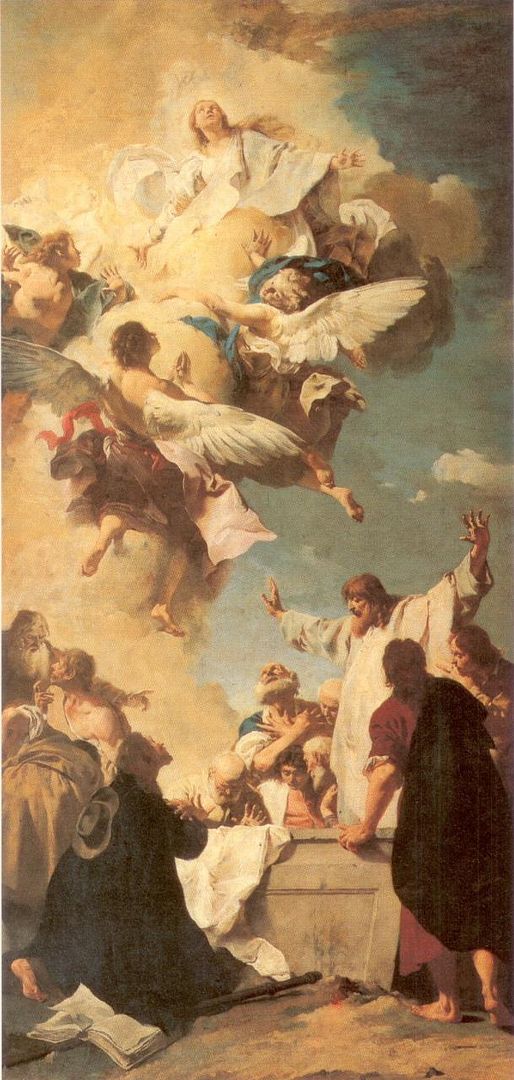 In their sermons and speeches on the feast day of the Assumption of the Mother of God, the holy fathers and the great doctors of the church were speaking of something that the faithful already knew and accepted: all they did was to bring it out into the open, to explain its meaning and substance in other terms. Above all, they made it most clear that this feast commemorated not merely the fact that the blessed Virgin Mary did not experience bodily decay, but also her triumph over death and her heavenly glory, following the example of her only Son, Jesus Christ.
In their sermons and speeches on the feast day of the Assumption of the Mother of God, the holy fathers and the great doctors of the church were speaking of something that the faithful already knew and accepted: all they did was to bring it out into the open, to explain its meaning and substance in other terms. Above all, they made it most clear that this feast commemorated not merely the fact that the blessed Virgin Mary did not experience bodily decay, but also her triumph over death and her heavenly glory, following the example of her only Son, Jesus Christ.
Thus Saint John Damascene, who is the greatest exponent of this tradition, compares the bodily Assumption of the revered Mother of God with her other gifts and privileges: It was right that she who had kept her virginity unimpaired through the process of giving birth should have kept her body without decay through death. It was right that she who had given her Creator, as a child, a place at her breast should be given a place in the dwelling-place of her God. It was right that the bride espoused by the Father should dwell in the heavenly bridal chamber. It was right that she who had gazed on her Son on the cross, her heart pierced at that moment by the sword of sorrow that she had escaped at his birth, should now gaze on him seated with his Father. It was right that the Mother of God should possess what belongs to her on and to be honored by every creature as the God’s Mother and handmaid.
 Saint Germanus of Constantinople considered that the preservation from decay of the body of the Mother of God, the Virgin Mary, and its elevation to heaven as being not only appropriate to her Motherhood but also to the peculiar sanctity of its virgin state: It is written, that you appear in beauty, and your virginal body is altogether holy, altogether chaste, altogether the dwelling-place of God; from which it follows that it is not in its nature to decay into dust, but that it is transformed, being human, into a glorious and incorruptible life, the same body, living and glorious, unharmed, sharing in perfect life.
Saint Germanus of Constantinople considered that the preservation from decay of the body of the Mother of God, the Virgin Mary, and its elevation to heaven as being not only appropriate to her Motherhood but also to the peculiar sanctity of its virgin state: It is written, that you appear in beauty, and your virginal body is altogether holy, altogether chaste, altogether the dwelling-place of God; from which it follows that it is not in its nature to decay into dust, but that it is transformed, being human, into a glorious and incorruptible life, the same body, living and glorious, unharmed, sharing in perfect life.
Another very ancient author asserts: Being the most glorious Mother of Christ our savior and our God, the giver of life and immortality, she is given life by him and shares bodily incorruptibility for all eternity with him who raised her from the grave and drew her up to him in a way that only he can understand.
All that the holy fathers say refers ultimately to Scripture as a foundation, which gives us the vivid image of the great Mother of God as being closely attached to her divine Son and always sharing his lot.
It is important to remember that from the second century onwards the holy fathers have been talking of the Virgin Mary as the new Eve for the new Adam: not equal to him, of course, but closely joined with him in the battle against the enemy, which ended in the triumph over sin and death that had been promised even in Paradise. The glorious resurrection of Christ is essential to this victory and its final prize, but the blessed Virgin’s share in that fight must also have ended in the glorification of her body. For as the Apostle says: When this mortal nature has put on immortality, then the scripture will be fulfilled that says “Death is swallowed up in victory."
So then, the great Mother of God, so mysteriously united to Jesus Christ from all eternity by the same decree of predestination, immaculately conceived, an intact virgin throughout her divine motherhood, a noble associate of our Redeemer as he defeated sin and its consequences, received, as it were, the final crowning privilege of being preserved from the corruption of the grave and, following her Son in his victory over death, was brought, body and soul, to the highest glory of heaven, to shine as Queen at the right hand of that same Son, the immortal King of Ages.
 In their sermons and speeches on the feast day of the Assumption of the Mother of God, the holy fathers and the great doctors of the church were speaking of something that the faithful already knew and accepted: all they did was to bring it out into the open, to explain its meaning and substance in other terms. Above all, they made it most clear that this feast commemorated not merely the fact that the blessed Virgin Mary did not experience bodily decay, but also her triumph over death and her heavenly glory, following the example of her only Son, Jesus Christ.
In their sermons and speeches on the feast day of the Assumption of the Mother of God, the holy fathers and the great doctors of the church were speaking of something that the faithful already knew and accepted: all they did was to bring it out into the open, to explain its meaning and substance in other terms. Above all, they made it most clear that this feast commemorated not merely the fact that the blessed Virgin Mary did not experience bodily decay, but also her triumph over death and her heavenly glory, following the example of her only Son, Jesus Christ. Saint Germanus of Constantinople considered that the preservation from decay of the body of the Mother of God, the Virgin Mary, and its elevation to heaven as being not only appropriate to her Motherhood but also to the peculiar sanctity of its virgin state: It is written, that you appear in beauty, and your virginal body is altogether holy, altogether chaste, altogether the dwelling-place of God; from which it follows that it is not in its nature to decay into dust, but that it is transformed, being human, into a glorious and incorruptible life, the same body, living and glorious, unharmed, sharing in perfect life.
Saint Germanus of Constantinople considered that the preservation from decay of the body of the Mother of God, the Virgin Mary, and its elevation to heaven as being not only appropriate to her Motherhood but also to the peculiar sanctity of its virgin state: It is written, that you appear in beauty, and your virginal body is altogether holy, altogether chaste, altogether the dwelling-place of God; from which it follows that it is not in its nature to decay into dust, but that it is transformed, being human, into a glorious and incorruptible life, the same body, living and glorious, unharmed, sharing in perfect life.All that the holy fathers say refers ultimately to Scripture as a foundation, which gives us the vivid image of the great Mother of God as being closely attached to her divine Son and always sharing his lot.
It is important to remember that from the second century onwards the holy fathers have been talking of the Virgin Mary as the new Eve for the new Adam: not equal to him, of course, but closely joined with him in the battle against the enemy, which ended in the triumph over sin and death that had been promised even in Paradise. The glorious resurrection of Christ is essential to this victory and its final prize, but the blessed Virgin’s share in that fight must also have ended in the glorification of her body. For as the Apostle says: When this mortal nature has put on immortality, then the scripture will be fulfilled that says “Death is swallowed up in victory."
So then, the great Mother of God, so mysteriously united to Jesus Christ from all eternity by the same decree of predestination, immaculately conceived, an intact virgin throughout her divine motherhood, a noble associate of our Redeemer as he defeated sin and its consequences, received, as it were, the final crowning privilege of being preserved from the corruption of the grave and, following her Son in his victory over death, was brought, body and soul, to the highest glory of heaven, to shine as Queen at the right hand of that same Son, the immortal King of Ages.
O glorious Maid, exalted far
Beyond the light of burning star,
From him who made thee thou hast won
Grace to be Mother of his Son.
That which was lost in hapless Eve
Thy holy Scion did retrieve;
The tear-worn sons of Adam’s race
Through thee have seen the heavenly place.
Thou wast the gate of heaven’s high Lord,
The door through which the light hath poured.
Christians rejoice, for through a Maid
To all mankind is life conveyed!
All honor, laud and glory be,
O Jesus, Virgin-born to thee!
All glory, as is ever meet,
To Father and to Paraclete. Amen.
Today, August 5, we celebrate the feast (optional memorial) of the Dedication of the Papal Basilica of Mary Major (Basilica di Santa Maria Maggiore) in Rome. This grand basilica is also known as the Basilica of Saint Mary of the Snow (Santa Maria ad Nives ) due to a miraculous snowfall occurring there during the hot summer months, and the Basilica of Saint Mary of the Crib (Santa Maria ad Præsepe), from the relics of the holy crib or manger of Bethlehem, in which Christ was laid at his birth, housed within.
Saint Mary Major takes it’s name from two references to greatness (“major”): first, it is the largest church in the world dedicated to Our Blessed Mother; second, that it is one of four Papal (or major) basilicas. Together with Saint Lawrence outside the Walls, these four basilicas were formerly referred to as the five "patriarchal basilicas" of Rome, associated with the five ancient patriarchal sees of Christendom:
Saint John Lateran: represents Rome, the See of Peter
Saint Paul outside the Walls: represents the See of Alexandria
Saint Peter: represents the See of Constantinople
Saint Lawrence outside the Walls: represents the See of Jerusalem
Saint Mary Major: represents the See of Antioch, where Mary spent the majority of her life.
Also known as the Liberian Basilica, as it was presided over by Pope Liberius, this Basilica housed one of the earliest Christian congregations of Rome. It is also the only Roman basilica that retained the core of its original structure, left intact despite several construction projects and damage from the great earthquake of 1348.
The beginnings of Saint Mary Major date to the Constantinian period (300s AD), under the direction of Pope Liberius. According to Holy Legend, as recounted in the Breviary:
"Liberius was on the chair of Peter (352-366) when the Roman patrician John and his wife, who was of like nobility, vowed to bequeath their estate to the most Holy Virgin and Mother of God, for they had no children to whom their property could go. The couple gave themselves to assiduous prayer, beseeching Mary to make known to them in some way what pious work they should subsidize in her honor.
Mary answered their petition and confirmed her reply by means of the following miracle. On the fifth of August — a time when it is unbearably hot in the city of Rome — a portion of the Esquiline would be covered with snow during the night. During that same night the Mother of God directed John and his wife in separate dreams to build a church to be dedicated to the Virgin Mary on the site where they would see snow lying. For it was in this manner that she wanted her inheritance to be used.
John immediately reported the whole matter to Pope Liberius, and he declared that a similar dream had come to him. Accompanied by clergy and people, Liberius proceeded on the following morning in solemn procession to the snow-covered hill and there marked off the area on which the church in Mary's honor was to be constructed.”
Each year on August fifth, a solemn Mass is offered to celebrate the Miracle of the Snows. During the Mass, white rose petals are dropped from the coffered ceiling, covering the floor, celebrating and re-creating the miraculous snowfall of the fourth century.
Following construction of the grand basilica, Pope Liberius presided over Masses for the congregation. Under Pope Sixtus III (432-440) the basilica was rebuilt. Following the Council of Ephesus, led by Saint Cyril of Alexandria, Mary was definitively declared the Theotokos (see here and here)—the Divine Mother of God—and the basilica was consecrated in her honor. The basilica was decorated with mosaics from the lives of Christ and Our Blessed Mother, which have survived until today. Also present is the oldest surviving image of the Blessed Virgin. Known as the Salus Populi Romani, (The Health of the Roman People), this icon is credited with saving Rome from the plague. Thought to have been painted by John the Evangelist, radiocarbon dating has placed the age of this icon at approximately two thousand years old.
As early as the end of the fourth century a replica of the Bethlehem nativity grotto had been added, including relics of the manger of Christ. On this account the edifice became known as "St. Mary of the Crib." The crib resembles an ordinary manger, but is kept in a case of silver, and in it lies an image of a little child, also of silver. On Christmas day the holy manger is taken out of the case, and exposed. It is kept in a subterraneous chapel in this church, and throughout history, saints, including Saint Jerome, have written about this holy relic—both when it resided in Bethlehem and after its relocation to Rome.
The Basilica of Saint Mary Major is important to Christendom for three important reasons:
1) The basilica stands as a venerable monument to the Council of Ephesus (431), during which the dogma of Mary's divine Motherhood was solemnly defined. The definition of the Council occasioned a most notable increase in the veneration paid to Mary.
2) The basilica is Rome's "church of the crib," a Bethlehem within the Eternal City. It also is a celebrated station church, serving, for instance, as the center for Rome's liturgy for the first Mass on Christmas. In some measure every picture of Mary with the divine Child is traceable to this church due to the surviving Salus Populi Romani.
3) Saint Mary Major is Christendom's first Marian shrine for pilgrims. It set the precedent for the countless shrines where pilgrims gather to honor Our Blessed Mother throughout the world. Here was introduced an authentic expression of popular piety that has been the source of untold blessings and graces for Christianity in the past as in the present.
On this Feast of this Basilica dedicated to the Blessed Mother, let us ask Our Lady to intercede for our needs. During this month of August, dedicated to the Immaculate Heart of Mary, let us honor Mary the Mother of God and pray that she will intercede for our intentions and those of our loved ones.
Lord,
pardon the sins of Your people.
May the prayers of Mary, the mother of Your Son,
help to save us
for by ourselves we cannot please You.
Grant this through our Lord Jesus Christ, Your Son,
who lives and reigns with You and the Holy Spirit,
one God, for ever and ever. Amen.
Prayer to Our Lady of the Snows
Mary, Mother of God, it is our Christian belief that all who fashion their lives in imitation of your Son, Jesus Christ, and have placed their hope in Him are gathered together in a communion of saints. Those who have gone before us live in intimate communion with Christ. You are the most eminent of them, for you were drawn into His life and being as no other. You who gave Him human life followed Jesus, the Way, the Truth and the Life.
Mary, look at us. Look at all who are centered on your Son. At the present time some of his disciples are pilgrims on earth. Others have died and are being purified, while still others are in glory, contemplating 'in full light, God Himself Triune and One, exactly as He is. All of God's people hunger to be intimately one with Him.
Mary, we are the wayfarers and we hunger for this exchange of spiritual goods with you who were so intimately close to Jesus Christ. Your image, as protectress of the Roman people, reminds us that you invite us to center on Christ. Your arms embrace Jesus fully, effortlessly. Jesus, whose burden is light and yoke is easy, wishes to be as close to every individual as He is to you. You are both wayfarer and guide to us wayfarers on our pilgrimage of faith.
Teach us, Mary, to embrace Christ fully, to make Him our Way, our Truth, our Life.
Teach us, Mary, to carry Christ to the world, and, each in our own way, to give Him birth in the hearts of many. Protect your people, Mary; protect your Church. We ask this, as we ask all things, through Jesus Christ Our Lord. Amen.
Inspired by the origins and spiritual history of the Holy Rosary, we continue our meditation on the psalms, one each day, in order, for 150 days.
Psalm: 102: Prayer in Time of Distress
1 Hear my prayer, O LORD;
let my cry for help come to you.
2 Do not hide your face from me
when I am in distress.
Turn your ear to me;
when I call, answer me quickly.
3 For my days vanish like smoke;
my bones burn like glowing embers.
4 My heart is blighted and withered like grass;
I forget to eat my food.
5 Because of my loud groaning
I am reduced to skin and bones.
6 I am like a desert owl,
like an owl among the ruins.
7 I lie awake; I have become
like a bird alone on a roof.
8 All day long my enemies taunt me;
those who rail against me use my name as a curse.
9 For I eat ashes as my food
and mingle my drink with tears
10 because of your great wrath,
for you have taken me up and thrown me aside.
11 My days are like the evening shadow;
I wither away like grass.
12 But you, O LORD, sit enthroned forever;
your renown endures through all generations.
13 You will arise and have compassion on Zion,
for it is time to show favor to her;
the appointed time has come.
14 For her stones are dear to your servants;
her very dust moves them to pity.
15 The nations will fear the name of the LORD,
all the kings of the earth will revere your glory.
16 For the LORD will rebuild Zion
and appear in his glory.
17 He will respond to the prayer of the destitute;
he will not despise their plea.
18 Let this be written for a future generation,
that a people not yet created may praise the LORD :
19 "The LORD looked down from his sanctuary on high,
from heaven he viewed the earth,
20 to hear the groans of the prisoners
and release those condemned to death."
21 So the name of the LORD will be declared in Zion
and his praise in Jerusalem
22 when the peoples and the kingdoms
assemble to worship the LORD.
23 In the course of my life he broke my strength;
he cut short my days.
24 So I said:
"Do not take me away, O my God, in the midst of my days;
your years go on through all generations.
25 In the beginning you laid the foundations of the earth,
and the heavens are the work of your hands.
26 They will perish, but you remain;
they will all wear out like a garment.
Like clothing you will change them
and they will be discarded.
27 But you remain the same,
and your years will never end.
28 The children of your servants will live in your presence;
their descendants will be established before you."
Day 217 of 365
Prayer Intentions: For the Graces of Our Blessed Mother; To resemble her in life, and come to Jesus through her intercession, guidance, and prayers.
Requested Intentions: Health, financial success, positive move (S); Financial security, and health, guidance, and protection for children (ML); For the religious and children of Saint Xavier’s Boarding School, India (FB); Fortitude and faith, Career success (A); Healing of a relationship, employment (A); End to debt and legal difficulties; immigration success (B); For a mother’s continued employment (S); For continued blessings on a relationship (S); For a sick grandmother (R); For the building of a Catholic community, family, and law practice (M); Those suffering from depression (J); Successful adoption (S); Healing of a father battling cancer (S).
Psalm: Psalm 102: Prayer in Time of Distress
Beyond the light of burning star,
From him who made thee thou hast won
Grace to be Mother of his Son.
That which was lost in hapless Eve
Thy holy Scion did retrieve;
The tear-worn sons of Adam’s race
Through thee have seen the heavenly place.
Thou wast the gate of heaven’s high Lord,
The door through which the light hath poured.
Christians rejoice, for through a Maid
To all mankind is life conveyed!
All honor, laud and glory be,
O Jesus, Virgin-born to thee!
All glory, as is ever meet,
To Father and to Paraclete. Amen.
Today, August 5, we celebrate the feast (optional memorial) of the Dedication of the Papal Basilica of Mary Major (Basilica di Santa Maria Maggiore) in Rome. This grand basilica is also known as the Basilica of Saint Mary of the Snow (Santa Maria ad Nives ) due to a miraculous snowfall occurring there during the hot summer months, and the Basilica of Saint Mary of the Crib (Santa Maria ad Præsepe), from the relics of the holy crib or manger of Bethlehem, in which Christ was laid at his birth, housed within.
Saint Mary Major takes it’s name from two references to greatness (“major”): first, it is the largest church in the world dedicated to Our Blessed Mother; second, that it is one of four Papal (or major) basilicas. Together with Saint Lawrence outside the Walls, these four basilicas were formerly referred to as the five "patriarchal basilicas" of Rome, associated with the five ancient patriarchal sees of Christendom:
Saint John Lateran: represents Rome, the See of Peter
Saint Paul outside the Walls: represents the See of Alexandria
Saint Peter: represents the See of Constantinople
Saint Lawrence outside the Walls: represents the See of Jerusalem
Saint Mary Major: represents the See of Antioch, where Mary spent the majority of her life.
Also known as the Liberian Basilica, as it was presided over by Pope Liberius, this Basilica housed one of the earliest Christian congregations of Rome. It is also the only Roman basilica that retained the core of its original structure, left intact despite several construction projects and damage from the great earthquake of 1348.
The beginnings of Saint Mary Major date to the Constantinian period (300s AD), under the direction of Pope Liberius. According to Holy Legend, as recounted in the Breviary:
"Liberius was on the chair of Peter (352-366) when the Roman patrician John and his wife, who was of like nobility, vowed to bequeath their estate to the most Holy Virgin and Mother of God, for they had no children to whom their property could go. The couple gave themselves to assiduous prayer, beseeching Mary to make known to them in some way what pious work they should subsidize in her honor.
Mary answered their petition and confirmed her reply by means of the following miracle. On the fifth of August — a time when it is unbearably hot in the city of Rome — a portion of the Esquiline would be covered with snow during the night. During that same night the Mother of God directed John and his wife in separate dreams to build a church to be dedicated to the Virgin Mary on the site where they would see snow lying. For it was in this manner that she wanted her inheritance to be used.
John immediately reported the whole matter to Pope Liberius, and he declared that a similar dream had come to him. Accompanied by clergy and people, Liberius proceeded on the following morning in solemn procession to the snow-covered hill and there marked off the area on which the church in Mary's honor was to be constructed.”
Each year on August fifth, a solemn Mass is offered to celebrate the Miracle of the Snows. During the Mass, white rose petals are dropped from the coffered ceiling, covering the floor, celebrating and re-creating the miraculous snowfall of the fourth century.
Following construction of the grand basilica, Pope Liberius presided over Masses for the congregation. Under Pope Sixtus III (432-440) the basilica was rebuilt. Following the Council of Ephesus, led by Saint Cyril of Alexandria, Mary was definitively declared the Theotokos (see here and here)—the Divine Mother of God—and the basilica was consecrated in her honor. The basilica was decorated with mosaics from the lives of Christ and Our Blessed Mother, which have survived until today. Also present is the oldest surviving image of the Blessed Virgin. Known as the Salus Populi Romani, (The Health of the Roman People), this icon is credited with saving Rome from the plague. Thought to have been painted by John the Evangelist, radiocarbon dating has placed the age of this icon at approximately two thousand years old.
As early as the end of the fourth century a replica of the Bethlehem nativity grotto had been added, including relics of the manger of Christ. On this account the edifice became known as "St. Mary of the Crib." The crib resembles an ordinary manger, but is kept in a case of silver, and in it lies an image of a little child, also of silver. On Christmas day the holy manger is taken out of the case, and exposed. It is kept in a subterraneous chapel in this church, and throughout history, saints, including Saint Jerome, have written about this holy relic—both when it resided in Bethlehem and after its relocation to Rome.
The Basilica of Saint Mary Major is important to Christendom for three important reasons:
1) The basilica stands as a venerable monument to the Council of Ephesus (431), during which the dogma of Mary's divine Motherhood was solemnly defined. The definition of the Council occasioned a most notable increase in the veneration paid to Mary.
2) The basilica is Rome's "church of the crib," a Bethlehem within the Eternal City. It also is a celebrated station church, serving, for instance, as the center for Rome's liturgy for the first Mass on Christmas. In some measure every picture of Mary with the divine Child is traceable to this church due to the surviving Salus Populi Romani.
3) Saint Mary Major is Christendom's first Marian shrine for pilgrims. It set the precedent for the countless shrines where pilgrims gather to honor Our Blessed Mother throughout the world. Here was introduced an authentic expression of popular piety that has been the source of untold blessings and graces for Christianity in the past as in the present.
On this Feast of this Basilica dedicated to the Blessed Mother, let us ask Our Lady to intercede for our needs. During this month of August, dedicated to the Immaculate Heart of Mary, let us honor Mary the Mother of God and pray that she will intercede for our intentions and those of our loved ones.
Lord,
pardon the sins of Your people.
May the prayers of Mary, the mother of Your Son,
help to save us
for by ourselves we cannot please You.
Grant this through our Lord Jesus Christ, Your Son,
who lives and reigns with You and the Holy Spirit,
one God, for ever and ever. Amen.
Prayer to Our Lady of the Snows
Mary, Mother of God, it is our Christian belief that all who fashion their lives in imitation of your Son, Jesus Christ, and have placed their hope in Him are gathered together in a communion of saints. Those who have gone before us live in intimate communion with Christ. You are the most eminent of them, for you were drawn into His life and being as no other. You who gave Him human life followed Jesus, the Way, the Truth and the Life.
Mary, look at us. Look at all who are centered on your Son. At the present time some of his disciples are pilgrims on earth. Others have died and are being purified, while still others are in glory, contemplating 'in full light, God Himself Triune and One, exactly as He is. All of God's people hunger to be intimately one with Him.
Mary, we are the wayfarers and we hunger for this exchange of spiritual goods with you who were so intimately close to Jesus Christ. Your image, as protectress of the Roman people, reminds us that you invite us to center on Christ. Your arms embrace Jesus fully, effortlessly. Jesus, whose burden is light and yoke is easy, wishes to be as close to every individual as He is to you. You are both wayfarer and guide to us wayfarers on our pilgrimage of faith.
Teach us, Mary, to embrace Christ fully, to make Him our Way, our Truth, our Life.
Teach us, Mary, to carry Christ to the world, and, each in our own way, to give Him birth in the hearts of many. Protect your people, Mary; protect your Church. We ask this, as we ask all things, through Jesus Christ Our Lord. Amen.
Inspired by the origins and spiritual history of the Holy Rosary, we continue our meditation on the psalms, one each day, in order, for 150 days.
Psalm: 102: Prayer in Time of Distress
1 Hear my prayer, O LORD;
let my cry for help come to you.
2 Do not hide your face from me
when I am in distress.
Turn your ear to me;
when I call, answer me quickly.
3 For my days vanish like smoke;
my bones burn like glowing embers.
4 My heart is blighted and withered like grass;
I forget to eat my food.
5 Because of my loud groaning
I am reduced to skin and bones.
6 I am like a desert owl,
like an owl among the ruins.
7 I lie awake; I have become
like a bird alone on a roof.
8 All day long my enemies taunt me;
those who rail against me use my name as a curse.
9 For I eat ashes as my food
and mingle my drink with tears
10 because of your great wrath,
for you have taken me up and thrown me aside.
11 My days are like the evening shadow;
I wither away like grass.
12 But you, O LORD, sit enthroned forever;
your renown endures through all generations.
13 You will arise and have compassion on Zion,
for it is time to show favor to her;
the appointed time has come.
14 For her stones are dear to your servants;
her very dust moves them to pity.
15 The nations will fear the name of the LORD,
all the kings of the earth will revere your glory.
16 For the LORD will rebuild Zion
and appear in his glory.
17 He will respond to the prayer of the destitute;
he will not despise their plea.
18 Let this be written for a future generation,
that a people not yet created may praise the LORD :
19 "The LORD looked down from his sanctuary on high,
from heaven he viewed the earth,
20 to hear the groans of the prisoners
and release those condemned to death."
21 So the name of the LORD will be declared in Zion
and his praise in Jerusalem
22 when the peoples and the kingdoms
assemble to worship the LORD.
23 In the course of my life he broke my strength;
he cut short my days.
24 So I said:
"Do not take me away, O my God, in the midst of my days;
your years go on through all generations.
25 In the beginning you laid the foundations of the earth,
and the heavens are the work of your hands.
26 They will perish, but you remain;
they will all wear out like a garment.
Like clothing you will change them
and they will be discarded.
27 But you remain the same,
and your years will never end.
28 The children of your servants will live in your presence;
their descendants will be established before you."
Day 217 of 365
Prayer Intentions: For the Graces of Our Blessed Mother; To resemble her in life, and come to Jesus through her intercession, guidance, and prayers.
Requested Intentions: Health, financial success, positive move (S); Financial security, and health, guidance, and protection for children (ML); For the religious and children of Saint Xavier’s Boarding School, India (FB); Fortitude and faith, Career success (A); Healing of a relationship, employment (A); End to debt and legal difficulties; immigration success (B); For a mother’s continued employment (S); For continued blessings on a relationship (S); For a sick grandmother (R); For the building of a Catholic community, family, and law practice (M); Those suffering from depression (J); Successful adoption (S); Healing of a father battling cancer (S).
Psalm: Psalm 102: Prayer in Time of Distress
Subscribe to:
Posts (Atom)








